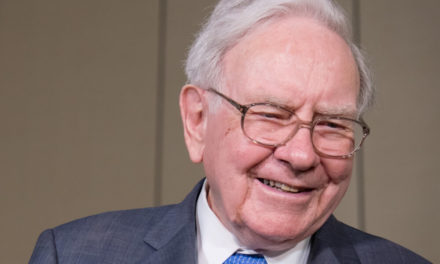In the past two weeks the market was sent into a major nosedive at the announcement of tariff hikes on Chinese goods, and China retaliated with tariffs of their own set to begin June 1. Wall Street was climbing out of that hole throughout the middle of last week with positive tariff news on the EU and North American fronts, at least until China once again sent the market into a tailspin with accusations of “bullying behavior” by the U.S. on Friday.
The market corrected its fall from Friday morning before sliding downward again Friday afternoon and into pre-market trading on Monday morning.
As more and more trade war headlines come out, many investors are probably mapping out doomsday plans as the roller-coaster speeds on. So what kind of strategies can an investor take to feel safer during what may be a prolonged trade war?
Nick Giacoumakis, president and founder of New England Investment & Retirement Group in North Andover, told CNBC that investors should first make sure they like the allocation of their portfolio.
“If you had a position in a technology fund that was supposed to be 8% of your portfolio and, because of the run-up in technology over the past few years, that position is now a 20% holding, that would be a scenario where you’d want to trim it back,” he said.
If long-term investors are looking to buy, Giacoumakis suggested looking into different sectors that remain undervalued, such as real estate and health care.
“If you were to invest like you own a grocery shop, you’d be among the shrewdest of investors,” Giacoumakis said. “If something is on sale, you stock up on it.”
Scott Wren, a senior global equity strategist for Wells Fargo Investment Institute, told CNBC that looking outside the U.S. is worth considering as emerging markets are growing in potential. Wells Fargo cashed out between 6% to 8% of its portfolio to explore these avenues, Wren said.
“We had such a big bounce from the Christmas Eve low,” he said. “We think emerging markets have the highest return potential between now and the end of the year.”
Wren thinks investors should have a good understanding of their allocations before taking advantage of the market dip.
“These tend to be fleeting opportunities, and you need to be able to have a plan and then pull the trigger,” he said.
Nicholas Scheibner, a certified financial planner at Baron Financial Group in Fair Lawn, New Jersey, revealed one more strategy to CNBC worth mulling over: low-cost index funds. He suggests that spreading the risk out among hundreds of companies through an index fund can be beneficial during a tit-for-tat trade war like the one between the U.S. and China.
“It’s very hard to predict which companies will be hit the worst,” Scheibner said.




